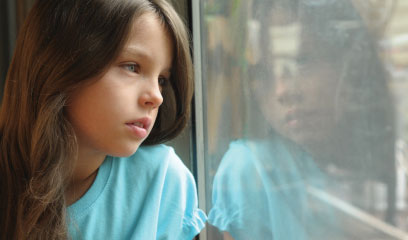 Imagine: You're eight years old, lying awake in a tent, terrified that you don't have enough oxygen to breathe. Jeannie Larsen still remembers that feeling decades later; scarier still, her parents were not in the same tent to comfort her.
Imagine: You're eight years old, lying awake in a tent, terrified that you don't have enough oxygen to breathe. Jeannie Larsen still remembers that feeling decades later; scarier still, her parents were not in the same tent to comfort her.
Larsen, now a pediatrician in Bellevue and the mother of a six-year-old girl, says that experience helped teach her that feeling safe and secure is a child's best tool for sleeping soundly when they're sleeping away at camp.
When kids aren't sleeping well at home, experts have advice for parents: make sure the bedroom is cool, dark and quiet, make sure the child goes to bed at the same time every night. After all, according to the National Sleep Foundation, kids from 5-12 years old need at least ten hours of sleep each night.
But at sleep-away or resident camps, where there might be ten kids to a cabin, these sleep tips are harder to apply. And, as Larsen points out, "If the child isn't sleeping, it's probably because they are worried." So, as families prepare for their first summer of big-kid camping, parents would be wise to focus on ways to stave off homesickness -- beginning by making sure the camp isn't more than their child is ready to handle.
Ready to go?
Kayaking, archery, arts and crafts -- the list of summer camp activities around Puget Sound is tantalizing. But just because a full week of resident camp sounds fun doesn't mean your child is necessarily ready for it.
Some camps, including the YMCA's Camp Seymour in Pierce County, offer a half-week option for beginning campers -- children entering first through third grade. Program Director Susan Dickerson says the 4-day, 3-night option is a good length of time for the first-time camper.
Counselors at Camp Seymour have an evening routine for younger campers that encourages a good night's sleep. Immediately after dinner, there are active games that allow kids to burn off energy, followed by "embers activities," such as stories around the campfire, which help kids wind down for the night, Dickerson says. The counselors sleep in the cabin with the children, and may allow them some "flashlight time," but for this age group, bedtime is about 9:30 p.m. "They keep such an active schedule, they are usually exhausted by the end of the day," says Dickerson.
Preparing your camper
If possible, experts say you should let your child have some say in which camp she goes to. Feeling forced to leave home without having any input into the decision can intensify homesickness, according to an article in the January, 2007 journal Pediatrics.
Camp Seymour and others usually offer "sampler days" on weekends in the spring. These give families a chance to try canoeing, climbing or singing around the campfire, increasing a child's comfort level with that particular camp and program. They may even meet some other children who will be at camp when they are. The better prepared a child is, the better her chance for a smooth adjustment and a good night's sleep.
If the camp is too far away to visit beforehand, families can use the camp's Web site or orientation brochures to learn about it together. Chatting it up with camp alumni and staff members can also increase a feeling of familiarity.
Larsen recommends sending children to resident camps with a special blanket, toy or other "transitional object" that can offer comfort to a lonely child. Getting to sleep when the cabin lights go out also depends on your child's own coping mechanisms. "If the child is good at initiating sleep at home, that will help," explains Larsen.
Practice makes perfect
Many camps also recommend that children try a few nights' stay at a grandparent's or friend's house as a trial run for sleep-away camp. During this time, phone calls should be kept to a minimum, though it is good for the child to have an opportunity to write a letter or email home. After the time away, parents and kids can talk about how things went and what worked best for the camper.
As you talk with your child beforehand, choose your words carefully. Camp Sealth on Vashon Island sends an 8-page informational packet to parents of resident campers that includes the advice: "Avoid dwelling on how much you'll miss him or her."
"One of the most important things for parents and doctors to recognize, and to say to kids before any separation, is that it's normal, not strange, to feel homesick," writes Dr. Edward Walton on the American Camp Association's website. In one study, 83% of campers reported homesickness on at least one day of camp.
Parents should expect their children to come home a little tired. But ideally, camp will have been an early lesson in independence rather than insomnia.
Hilary Benson is a freelance journalist with three children. Her work has appeared in ParentMap, Seattle Magazine and on KING-TV.











